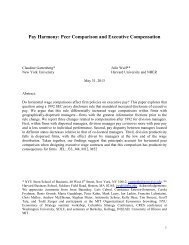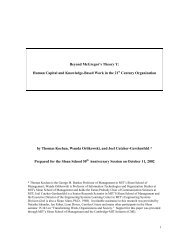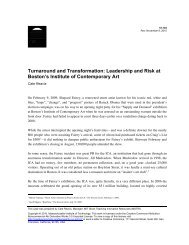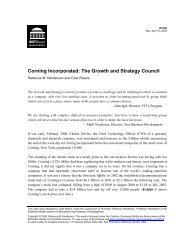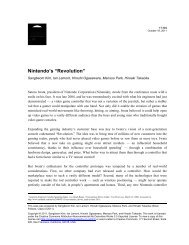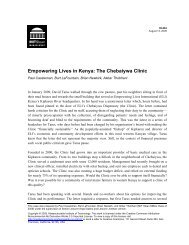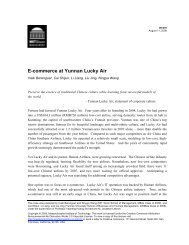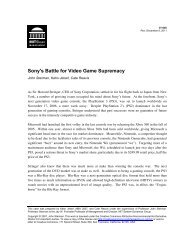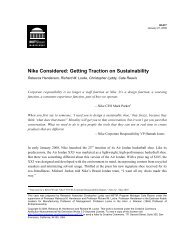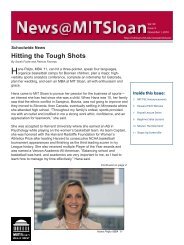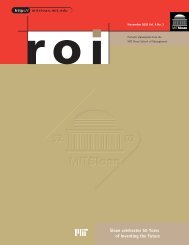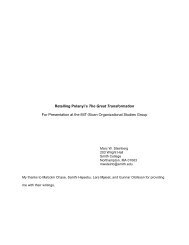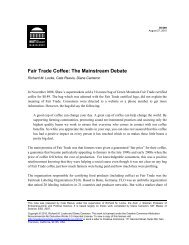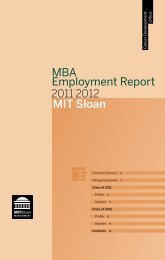Understanding earnings quality - MIT Sloan School of Management
Understanding earnings quality - MIT Sloan School of Management
Understanding earnings quality - MIT Sloan School of Management
Create successful ePaper yourself
Turn your PDF publications into a flip-book with our unique Google optimized e-Paper software.
Debt covenants: Dechow et al. (1996) find that manipulation firms have higher leverage ratios and<br />
are more likely to violate debt covenants during and after the manipulation period than control firms.<br />
Beneish (1999), however, does not find statistically significant differences between manipulation<br />
firms and control firms in either leverage ratios or default risk. 29<br />
Capital market incentives: Dechow et al. (1996) find that manipulation firms have higher ex ante<br />
external financing demands and higher ex post external financing activities than non-manipulation<br />
firms. Beneish (1999) again provides conflicting evidence, but Dechow et al. (2009) confirm the<br />
result using a more comprehensive sample <strong>of</strong> AAER firms.<br />
Board <strong>of</strong> directors and CEOs: AAER firms tend to have a smaller percentage <strong>of</strong> outside members on<br />
the board <strong>of</strong> directors, are more likely to have a CEO who also serves as chairman <strong>of</strong> the board or<br />
founder <strong>of</strong> the company and are less likely to have an outside blockholder than control firms (e.g.,<br />
Dechow et al, 1996; Beasley, 1996; Farber, 2005). In addition, Feng, Ge, Luo, and Shevlin (2009)<br />
provide evidence suggesting that CFOs become involved mainly under CEO pressure rather than for<br />
their own immediate financial benefits.<br />
Audit committees and auditors: Dechow et al. (1996) find that AAER firms are less likely to have an<br />
audit committee, but Beasley (1996) does not find a significant association. Farber (2005) shows<br />
that fraud firms tend to have fewer audit committee meetings and fewer financial experts on the<br />
audit committee. 30 He does not, however, find an effect <strong>of</strong> audit committee independence on<br />
accounting fraud. Neither Dechow et al. (1996) nor Beneish (1999) finds a significant difference<br />
between the auditor <strong>quality</strong> <strong>of</strong> misstatement firms and control firms, using Big 4 status as an<br />
29 Dechow et al. (1996) and Beneish (1999) find conflicting results in several cases. A possible explanation is the<br />
difference between the samples. Beneish’s sample includes 10 “fraud” firms identified from a search <strong>of</strong> the financial<br />
press that were not the subject <strong>of</strong> AAERs (yet, he argues). Dechow et al.’s sample consists <strong>of</strong> just over 90 AAER firms,<br />
all <strong>of</strong> which overstate <strong>earnings</strong>.<br />
30 McDaniel, Martin, and Maines (2002) in an experimental setting find that financial experts help audit committees<br />
focus on monitoring more important financial reporting issues.<br />
64



